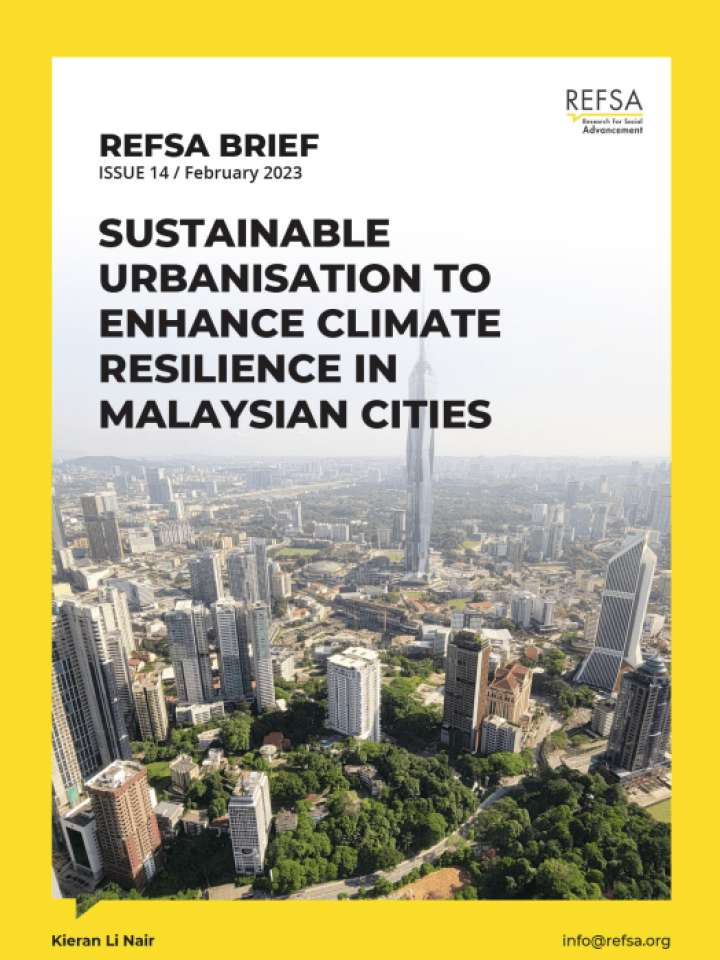Sustainable urbanisation to enhance climate resilience in Malaysian cities
This research brief investigates the ways in which climate change affects Malaysian cities, and how sustainable urbanisation measures which take on a whole-of-society approach can enhance the resilience of our cities. Sustainable urbanisation, in ensuring the long term viability of cities as well as enhancing the wellbeing of both cities and its inhabitants, aims to address equitable economic development, social progress and environmental responsibility. The challenges Malaysian cities face as a result of climate change can generally be broken down into temperature rises and extreme weather. The former contribute towards the urban heat island effect as well as sea level rises for coastal cities, while the latter is responsible for catastrophic flooding and related natural disasters. In addressing these challenges, special care must be taken towards the most socio-economically vulnerable communities, since they are disproportionately affected.
The report stresses that “To rationalise and complement its myriad existing climate action plans, Malaysia’s strategies for honing resilient cities should be formulated from the three basic frameworks of climate mitigation, climate adaptation, and financialisation.” Recommendations for climate adaptation strategies are:
- Retrofitting existing infrastructure in a pragmatic approach, to ensure that it can handle evolving climate conditions. This ranges from utilising nature-based solutions, such as sponge cities, improving infrastructure to support sustainable mobility, etc.
- Implementing resilience infrastructure, which includes the removal of existing bottlenecks as a short-term flood mitigation, improve disaster planning and mitigation mechanisms, as well as disaster financing.
- Capacity building and community resilience, i.e. ensuring communities are able to support themselves against the impacts of climate change from the ground level. For disasters and emergencies, emergency action plans which enable community action must be preemptively formulated before disasters and emergencies strike. Local governments should also be empowered, as they would be able to best determine shortcomings, ensure accountability, and offload responsibilities from larger authorities to focus on more major problems.
Explore further
